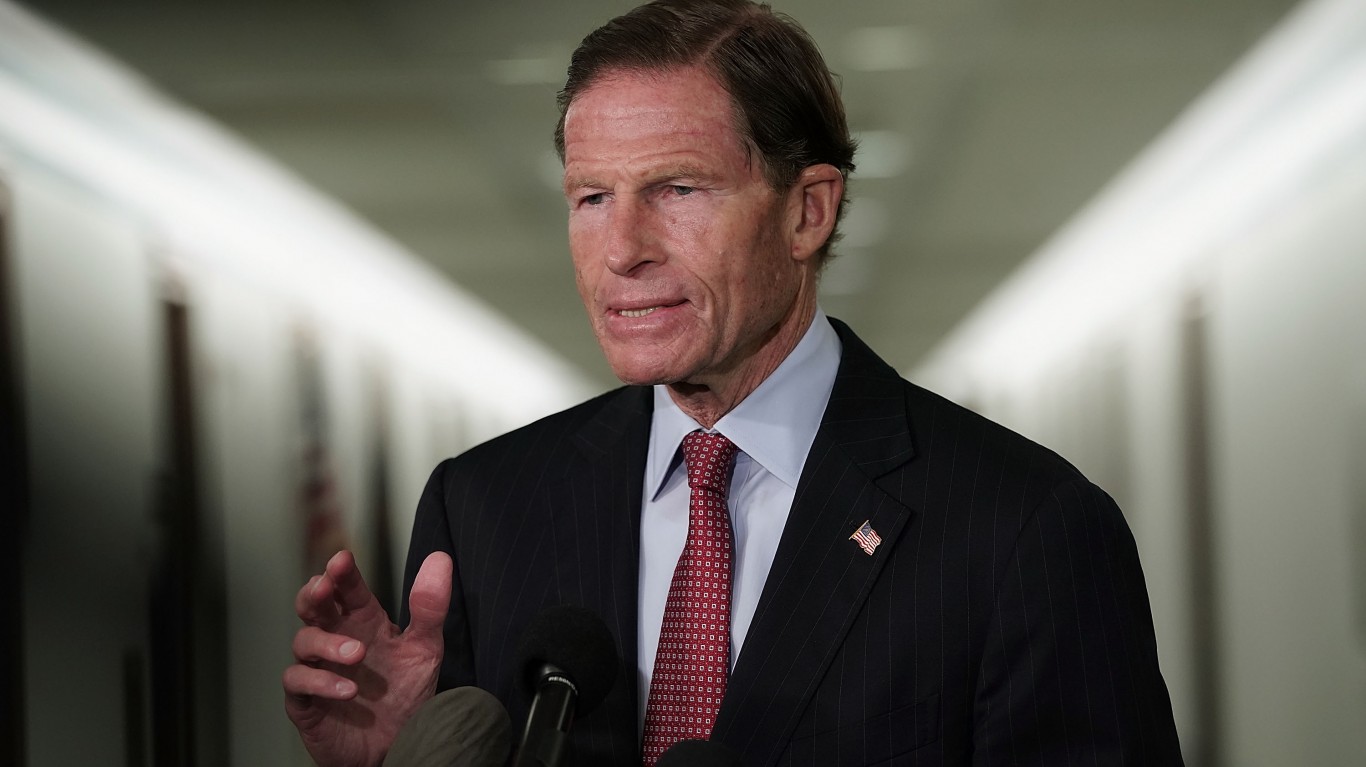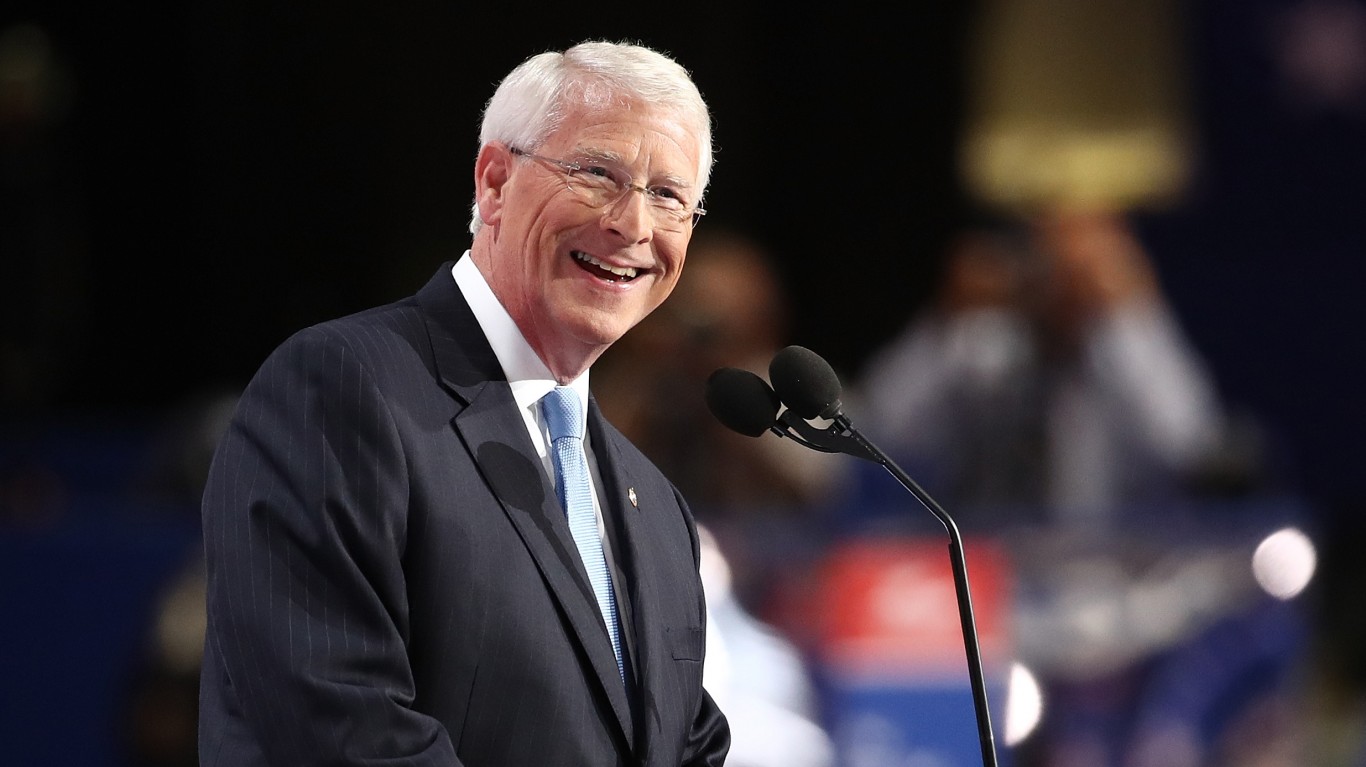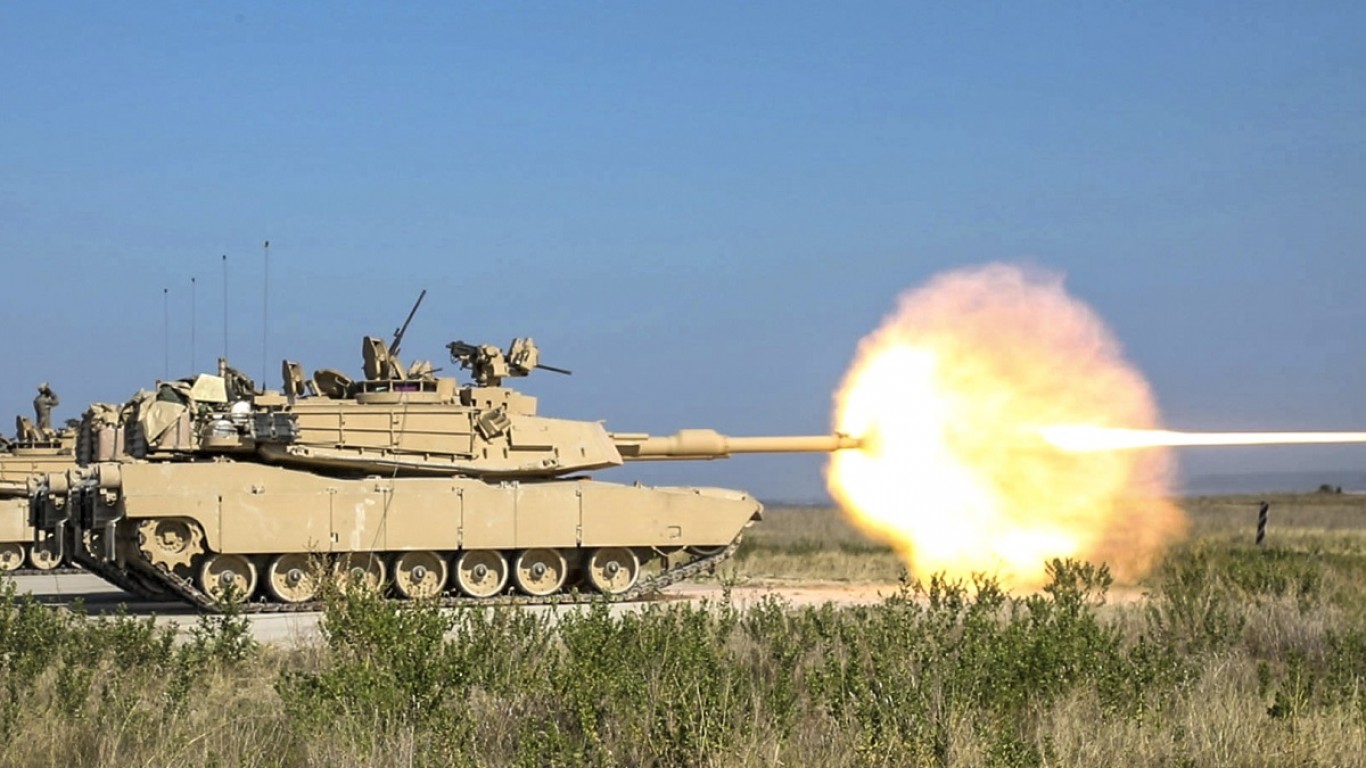
In an era where bipartisanship in Congress is at a near-all-time low, some areas still exist where cross-party collaboration is still viable. Support for the United States military is prevalent in both parties though the number of veterans in Congress is declining. In 1973, almost three-quarters of Congress had served, today that figure is closer to one in six members. Of course, military service isn’t a prerequisite for running for office but prior service does give important insights into crafting legislation. This article will examine the most pro-military senators based on experience, committee assignments, and voting records.
Why This Matters

In an election year, most attention goes to the top of the ticket but the down-ballot races are enormously consequential for whomever occupies the White House. With a divided legislature likely, control of the upper chamber will have a huge bearing on what legislation makes it to the Oval Office.
Selection Criteria

Almost every member of the upper chamber could be described as “pro-military” to some extent. To narrow the number down, the senators featured here need to have either previous service, key committee assignments, or recognition for their effort to support the United States military. There will be an equal number of Democrats and Republicans featured to reflect the bipartisan nature of a pro-military stance in the United States Senate.
Dan Sullivan

State: Alaska
Assumed office: 2015
Party: Republican
Committee Assignments: Armed Services, Veterans Affairs
Military Service: United States Marine Corps: 1993-1997 (active); 1997-2024 (reserve)
Alaska’s Dan Sullivan won a tight race for the Senate in 2014 against the incumbent Mark Begich and was reelected in 2020 by a more comfortable margin. Sullivan was a colonel in the Marine Corps and retired in February 2024 after 30 years of service. As a member of the Armed Forces and Veteran Affairs committees, he’s prioritized missile defense and shipbuilding.
Tom Cotton

State: Arkansas
Assumed office: 2015
Party: Republican
Committee Assignments: Armed Services, Veterans Affairs
Military Service: United States Army 2005-2009 (regular); 2010-2013 (reserve)
Tom Cotton unseated a two-term Democratic incumbent in 2014 by a hefty margin and easily swept aside a challenge from a Libertarian candidate in 2020. At 37, he was the youngest member of the Senate when first elected and still one of the youngest today. Cotton rarely joins bipartisan legislation and has occasionally spoken out against his party’s bills.
Cotton served as an officer in the United States Army and completed two combat deployments in Iraq and Afghanistan. As a member of the Committee on Armed Services, he sees China as one of the biggest threats to the United States. In 2021, he authored “Beat China” a report outlining a plan to overcome Beijing through economic warfare.
Rick Scott

State: Florida
Assumed office: 2019
Party: Republican
Committee Assignments: Armed Services
Military Service: United States Navy, 1971-1974
Believed to be the richest member of Congress, Florida’s Rick Scott attributes his 29-month stint in the Navy to unlocking his entrepreneurial side. He purchased soft drinks on shore leave to sell at a hefty markup on deployment.
He serves on the Committee on Armed Services and is the Ranking Member of the Subcommittee on Personnel. With a potentially difficult reelection campaign looming, Scott is hoping his support from veterans will win him a second term.
Joni Ernst

State: Iowa
Assumed office: 2015
Party: Republican
Committee Assignments: Armed Services,
Military Service: United States Army 1992-1993; Iowa Army National Guard 1993-2015
Iowa’s Joni Ernst served in the Iowa National Guard from 1993 to 2015. Ernst was deployed to Kuwait during the Iraq War from 2003-04. She was elected to the United States Senate in 2014 and won re-election in 2020 by a bigger margin than anticipated. As a combat veteran, she has advocated for better fitting body armor for female service members and combating sexual assault in the military.
Richard Blumenthal

State: Connecticut
Assumed office: 2011
Party: Democrat
Committee Assignments: Armed Services, Veterans Affairs
Military Service: United States Marine Corps 1970-1976 (reserve)
Richard Blumenthal’s six-year stint in the Marine Corps Reserves was scrutinized during his successful bid for the Senate in 2010. He won re-election in a landslide in 2016 and comfortably retained his seat in 2022. As a member of the Armed Services and Veteran Affairs committees, Blumenthal considers the military a top priority. He has led efforts to tackle homelessness among veterans by increasing access to affordable housing.
Gary Peters

State: Michigan
Assumed office: 2015
Party: Democrat
Committee Assignments: Armed Services
Military Service: United States Navy 1993-2008 (reserve)
Gary Peters is the most bipartisan Democrat in the Senate. Peters won a decisive victory for the Senate in 2014 and prevailed in a much closer contest in 2020. He spent 25 years in the United States Navy Reserve and spent time on deployment in the Persian Gulf. Veterans groups endorse him in recognition of his efforts to expand VA funding and support for repealing Don’t Ask Don’t Tell.
Tammy Duckworth

State: Illinois
Assumed office: 2017
Party: Democrat
Committee Assignments: Armed Services
Military Service: United States Army 1992-1996 (reserve); National Guard 1996-2014
A Major in the Illinois National Guard, Tammy Duckworth lost both of her legs when the Black Hawk she was co-piloting was struck by a rocket-propelled grenade in Baghdad in 2004. She successfully ran for the Senate in 2016 and retained her seat by a wide margin in 2022. She’s been recognized by military family associations and veterans groups for her advocacy for disabled veterans and military families.
Mark Kelly

State: Arizona
Assumed office: 2020
Party: Democrat
Committee Assignments: Armed Services
Military Service: United States Navy, 1986-2011
A former naval aviator and astronaut, Mark Kelly flew 39 combat missions in Operation Desert Storm in 1991. Kelly won a special election for the Senate in 2020 to complete the late John McCain’s term. He won a full six-year term in 2022. He’s a member of the Committee on Armed Services and chairs the Subcommittee on Emerging Threats and Capabilities. He’s endorsed by Vote Vets and has worked on bipartisan legislation to modernize the army and air force.
Roger Wicker

State: Mississippi
Assumed office: 2007
Party: Republican
Committee Assignments: Armed Services (Ranking Member)
Military Service: United States Air Force 1976-1980 (active) 1980-2004 (reserve)
Roger Wicker is the Ranking Member of the Committee on Armed Services. After four years of active service, Wicker spent 23 years in the United States Air Force Reserve, retiring as a lieutenant colonel in 2003. Wicker is a strong advocate for Israel and Ukraine and is also the author of the Securing the Homeland by Increasing our Power on the Seas (SHIPS) Act. The bipartisan bill sought to increase the United States Navy’s battle force ships to 355.
Should the Republicans regain control of the Senate, he may become the next Chair of the Senate Committee on Armed Services.
Jack Reed

State: Rhode Island
Assumed office: 1997
Party: Democrat
Committee Assignments: Armed Services (Chair)
Military Service: United States Army 1971-1979 (active) 1979-1991 (reserve)
Jack Reed has represented Rhode Island in the United States Senate since 1997. He’s been reelected four times by overwhelming margins. Reed was an officer in the 82nd Airborne Division and later taught at West Point. After leaving active service, he served in the United States Army Reserve from 1979-1991.
Reed has served as the Chair of the Committee on Armed Services since 2021. Because of his military expertise, he’s been suggested as a potential Secretary of Defense several times but has always refused consideration. In August 2024, Reed once again kiboshed rumors of becoming Secretary of Defense in the event of a Kamala Harris victory in November.
I’ve learned a great deal over the years. I think as a legislator I can do more for the nation and more for Rhode Island, and hopefully I can continue in that role.
Conclusion

The 118th Congress will certainly not be remembered for its productivity. However, support for the military is one of the few areas of American politics where bipartisanship is still alive and well. The senators featured here certainly aren’t the only members of the upper chamber who are pro-military. Indeed, just about every member of the United States Senate would make that claim. Pro-military can also have different meanings. It can refer to strengthening the armed forces but can also suggest support for active and retired service members and their families.
There are many uncertainties facing the United States after November but strong political support for the military will not be one of them.
Get Ready To Retire (Sponsored)
Start by taking a quick retirement quiz from SmartAsset that will match you with up to 3 financial advisors that serve your area and beyond in 5 minutes, or less.
Each advisor has been vetted by SmartAsset and is held to a fiduciary standard to act in your best interests.
Here’s how it works:
1. Answer SmartAsset advisor match quiz
2. Review your pre-screened matches at your leisure. Check out the advisors’ profiles.
3. Speak with advisors at no cost to you. Have an introductory call on the phone or introduction in person and choose whom to work with in the future
Thank you for reading! Have some feedback for us?
Contact the 24/7 Wall St. editorial team.




